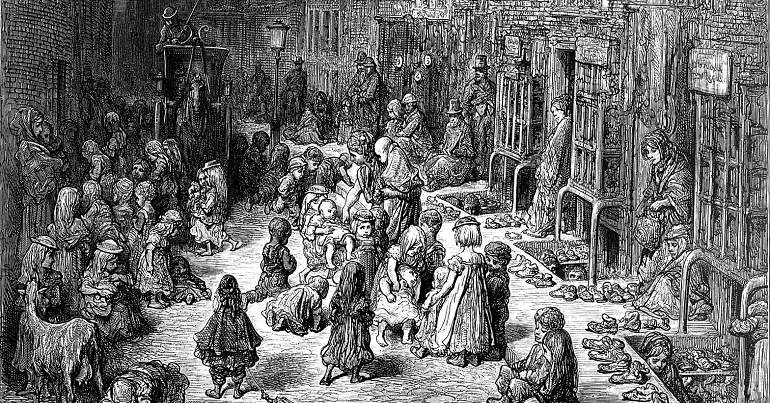Rickets – a disease associated with Victorian-era slums – is on the rise in Scotland, while other conditions linked to poverty and malnutrition are also increasing across the UK. On the rise: rickets and other diseases
Rickets is a skeletal disease caused by a sustained lack of Vitamin D. It can lead to skeletal deformities such as bowed legs or knock knees. Research has linked rickets to a lack of exposure to sunlight and Vitamin D, which is found in foods like oily fish and eggs. It largely disappeared from Britain more than half a century ago. This was after government and health service efforts to improve the public’s diet and exposure to sunlight. However, it’s now on the rise again.
In Scotland, a total of 442 cases of rickets were recorded in 2022, compared to 354 in 2018 – a 25% increase. Most of the cases were recorded in the Greater Glasgow and Clyde area, with 356 diagnoses.
Glasgow is one of the most deprived local authority areas in Scotland. 32% of all children in the city were estimated to be living in poverty in 2021-2022. According to the latest data from 2019, men living in the most deprived areas of the city on average live 15.4 years less than those in the most affluent parts. For women, the gap has increased from 8.6 to 11.6 years in recent times.
Some 482 cases of rickets were also found across England. Back in Scotland, and data collated by the Times showed 112 cases of tuberculosis in 2022, another disease which historically had been got under control. There was a sharp rise in scarlet fever diagnosis, with 223 cases in 2022 compared with 39 the year before. Meanwhile, in England there were 171 cases of scurvy in 2022, with three recorded in Scotland. This is a disease linked to Vitamin C deficiency.
People are poor in the UK – poverty has increased, and it set to continue to do so. With think tank the Resolution Foundation forecasting that child poverty is set to reach its highest levels since since 1998/88 in 2027/28, it’s likely that without action, the increase in Victorian-era diseases will only continue.


